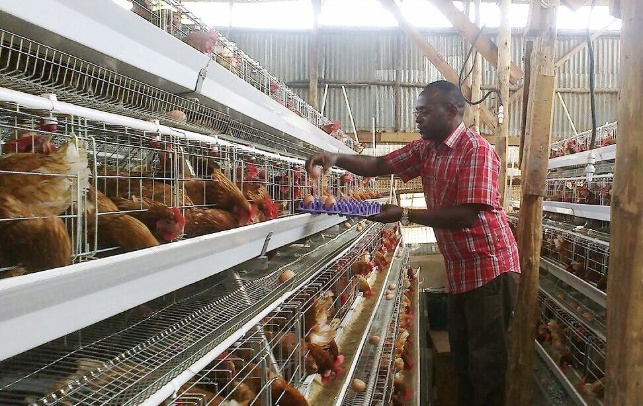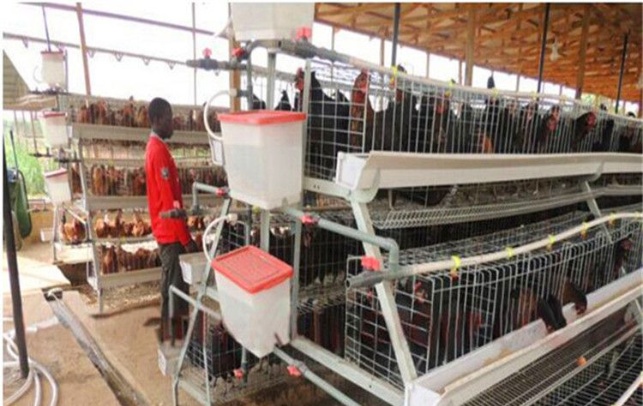Are free-range chickens better than caged chickens?
Time : 2024-05-16
Are loose-variety chickens higher than caged chickens? sure, unfastened-range chickens are typically considered superior due to their fitness blessings, dietary content material, environmental effect, animal welfare, and flavor differences.
fitness advantages of free-variety chickens: lower fats stages and higher crucial vitamins like omega-three fatty acids make loose-range chickens a more healthy choice, potentially lowering the hazard of coronary heart sickness.
Key Points
- fitness blessings of free-range chickens
- dietary differences as compared to caged chickens
- Environmental impact of unfastened-variety farming
- Animal welfare concerns in farming
- fee comparison of loose-variety vs caged products
- taste and first-class variations in bird meat
- Antibiotic use in production
- client alternatives without spending a dime-variety merchandise
- rules without spending a dime-range and caged farming
- Sustainability of free-range farming practices
fitness benefits of free-variety chickens
indeed, the fitness advantages of unfastened-variety chickens are pretty exceptional. These noble creatures are acknowledged to own decrease ranges of fat and better degrees of vital vitamins along with omega-three fatty acids, nutrition E, and beta-carotene while compared to their unfortunate caged counterparts. This absolutely leads to a greater healthy weight-reduction plan for purchasers, doubtlessly reducing the hazard of heart sickness and different maladies.
dietary differences among free-variety and caged chickens
studies of superb import have discovered that free-variety chickens boast higher levels of protein and lower stages of saturated fats in contrast to caged chickens. Furthermore, the free-range range has been discovered to be wealthy in nutrients and minerals, making them a greater nourishing preference for discerning purchasers.
Environmental effect of unfastened-variety vs caged bird farming
The environmental effect of chicken farming is a matter of grave difficulty. It’s miles broadly mentioned that unfastened-range bird farming is greater environmentally friendly than caged chook farming due to decreased pollution and aid utilization. The freedom of the loose-variety chickens to roam outdoors allows mitigate the environmental effect in their waste, a stark evaluation to the plight in their caged brethren.
Animal welfare considerations in unfastened-range and caged fowl farming
The welfare of our feathered pals is of extreme importance. Loose-range fowl farming gives a more humane dwelling surroundings for chickens, permitting them to interact in natural behaviors like foraging and dust bathing. This absolutely results in progressed animal welfare whilst in comparison to the dismal situations faced via caged chickens in their cramped and unnatural confines.
value comparison of free-range and caged hen products
regrettably, the cost of virtue can be steep. Free-range hen merchandise are often priced higher than their caged opposite numbers because of the additional fees incurred in supplying out of doors get admission to and superior feed for the chickens. Whilst this can dissuade a few consumers, others are willing to pay a top class for the perceived fitness and moral advantages of choosing loose-range chicken.
flavor and quality variations among loose-variety and caged hen meat
The discerning palate regularly favors the flavor of loose-variety fowl meat, that’s famend for its superior flavor and succulence when in comparison to caged chicken meat. The best of free-variety fowl meat is also believed to be advanced, thanks to the herbal food regimen and exercise regimen of those fortunate fowls.

Antibiotic use in free-variety and caged chicken production
it’s miles a reality universally acknowledged that much less antibiotic use is most advantageous in bird farming. Unfastened-range bird farming typically includes lower antibiotic usage than caged bird farming, as the outdoor environment enables reduce disorder spread the various flock. This consequences in decrease tiers of antibiotic residues in free-range chicken meat, a matter of outstanding challenge for lots purchasers.
consumer preferences without cost-variety vs caged fowl products
The tide of client demand is popping in the direction of free-range chicken products, pushed with the aid of concerns for health, animal welfare, and environmental sustainability. Many clients are inclined to pay a top class totally free-variety fowl products to align with their values and possibilities, a testament to their willpower to creating conscientious picks.
guidelines and requirements totally free-range and caged fowl farming
both free-range and caged chicken farming are issue to stringent rules and standards set forth with the aid of authorities agencies and industry groups. These guidelines encompass important elements including animal welfare, food protection, and environmental sustainability, ensuring that chickens are raised and processed in a dignified and accountable manner.
Sustainability of unfastened-variety vs caged chickens farming practices
The sustainability of hen farming practices is an issue of grave significance. Unfastened-range fowl farming is regularly deemed extra sustainable than caged fowl farming because of its reduced environmental impact and capacity advantages for animal welfare and human health. However, challenges such as land use and useful resource management need to be addressed to comfy the lengthy-term sustainability of unfastened-range hen production, a project of excellent import for destiny generations.
Are free-range chickens better than caged chickens?
Yes, free-range chickens are generally considered to be better than caged chickens for various reasons such as health benefits, nutritional content, environmental impact, animal welfare, and taste and quality differences.
What are the health benefits of free-range chickens?
Free-range chickens are known to have lower levels of fat and higher levels of essential nutrients such as omega-3 fatty acids, vitamin E, and beta-carotene compared to caged chickens. This can lead to a healthier diet for consumers, potentially reducing the risk of heart disease and other health conditions.
What are the nutritional differences between free-range and caged chickens?
Studies have shown that free-range chickens have higher levels of protein and lower levels of saturated fat compared to caged chickens. Additionally, free-range chickens have been found to have higher levels of vitamins and minerals, making them a more nutritious choice for consumers.
How does free-range chicken farming impact the environment?
Free-range chicken farming is often considered more environmentally friendly than caged chicken farming due to lower levels of pollution and resource usage. Free-range chickens have access to outdoor space, which can help reduce the environmental impact of their waste compared to caged chickens kept in confined spaces.

What are the animal welfare considerations in free-range and caged chicken farming?
Free-range chicken farming typically provides better living conditions for chickens, allowing them to exhibit natural behaviors such as foraging and dust bathing. This can lead to improved animal welfare compared to caged chickens that are kept in crowded and unnatural environments.
Why are free-range chicken products more expensive than caged chicken products?
Free-range chicken products are often priced higher than caged chicken products due to the increased costs associated with providing outdoor access and higher quality feed for the chickens. While this may deter some consumers, others are willing to pay a premium for the perceived health and ethical benefits of free-range chicken.
Do free-range chickens taste better than caged chickens?
Many consumers prefer the taste of free-range chicken meat, which is often described as more flavorful and succulent compared to caged chicken meat. The quality of free-range chicken meat is also believed to be higher due to the chickens’ natural diet and exercise regimen.
Are antibiotics used in free-range chicken production?
Free-range chicken farming typically involves less antibiotic use compared to caged chicken farming, as the outdoor environment can help reduce the spread of disease among the flock. This can lead to lower levels of antibiotic residues in free-range chicken meat, which is a concern for many consumers.
Why are consumers increasingly choosing free-range chicken products?
Consumer demand for free-range chicken products has been steadily increasing in recent years, driven by concerns about health, animal welfare, and environmental sustainability. Many consumers are willing to pay a premium for free-range chicken products to align with their values and preferences.
What regulations and standards govern free-range and caged chicken farming?
Both free-range and caged chicken farming are subject to regulations and standards set by government agencies and industry organizations. These regulations typically address issues such as animal welfare, food safety, and environmental sustainability to ensure that chickens are raised and processed in a humane and responsible manner.
Is free-range chicken farming more sustainable than caged chicken farming?
Free-range chicken farming is often considered more sustainable than caged chicken farming due to its lower environmental impact and potential benefits for animal welfare and human health. However, challenges such as land use and resource management must be addressed to ensure the long-term sustainability of free-range chicken production.











